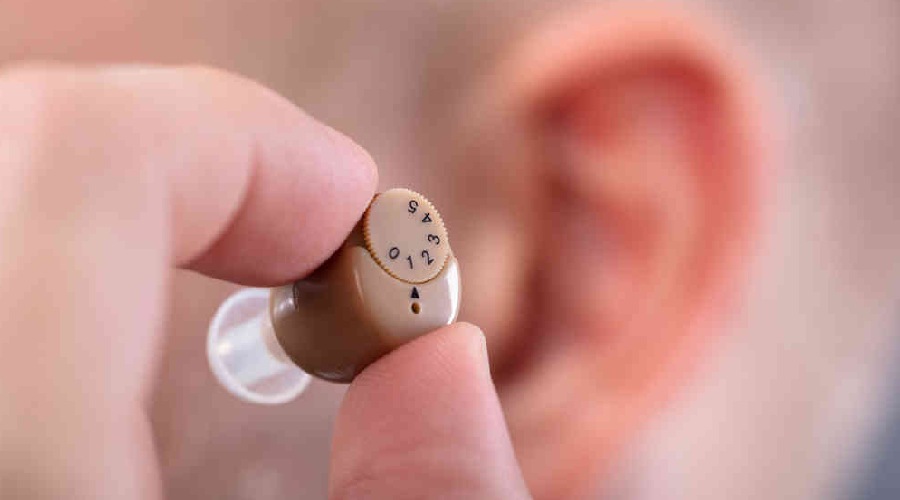People with hearing loss may lower their risk of dementia by using hearing aids, medical researchers said on Thursday, releasing a study that has identified an easy-to-adopt tool to avert dementia linked to hearing loss.
The mammoth study involving over 4,37,000 people has suggested that people who experience hearing loss but do not use hearing aids have a 42 per cent higher risk of dementia than people without hearing loss. But the use of hearing aids eliminates this additional risk.
Hearing loss and dementia are common conditions among the elderly and earlier research has indicated that hearing loss may be associated with 8 per cent of dementia cases worldwide. But whether the use of hearing aids could change the risk remained unclear.
Now, an international research team has examined data from a healthcare database called the UK Biobank with records of over 4,37,000 people, among whom around 1,11,000 had some level of hearing loss. Among them, 13,000 used hearing aids.
“Our study provides the best evidence to date to suggest that hearing aids could be a minimally invasive, cost-effective treatment to mitigate the potential impact of hearing loss on dementia,” Dongshan Zhu at the Shandong University in China, who led the study, said in a media release. Dongshan and his colleagues from China, Australia, Pakistan, the UK and the US have published their findings in The Lancet Public Health, a medical journal.
Experts at the World Health Organisation had estimated two years ago that hearing loss affects 10 per cent of people between 40 and 69 years, 30 per cent of people between 65 and 84, and 70 to 90 per cent ofpeople aged 85 years and older.
Hearing loss also appears to accelerate the progress of dementia. US researchers had found in a 2014 study that among people aged 65 years or older who developed dementia, those with hearing loss developed dementia in 10 years compared with 11 years in those without hearing loss.
Two psychiatrists have said the new findings are compelling. “This is the time to increase awareness of and detection of hearing loss and acceptability of hearing aids,” Gill Livingston and Sergi Castafreda at the University College, London, wrote in a commentary on the study in the same issue of the journal.
“Hearing aids improve overall well-being, but we see reluctance among many patients to use them,” said Marina Saldanha, an ear-nose-throat medicine specialist and associate professor at the KS Hegde Medical Academy near Mangalore.

